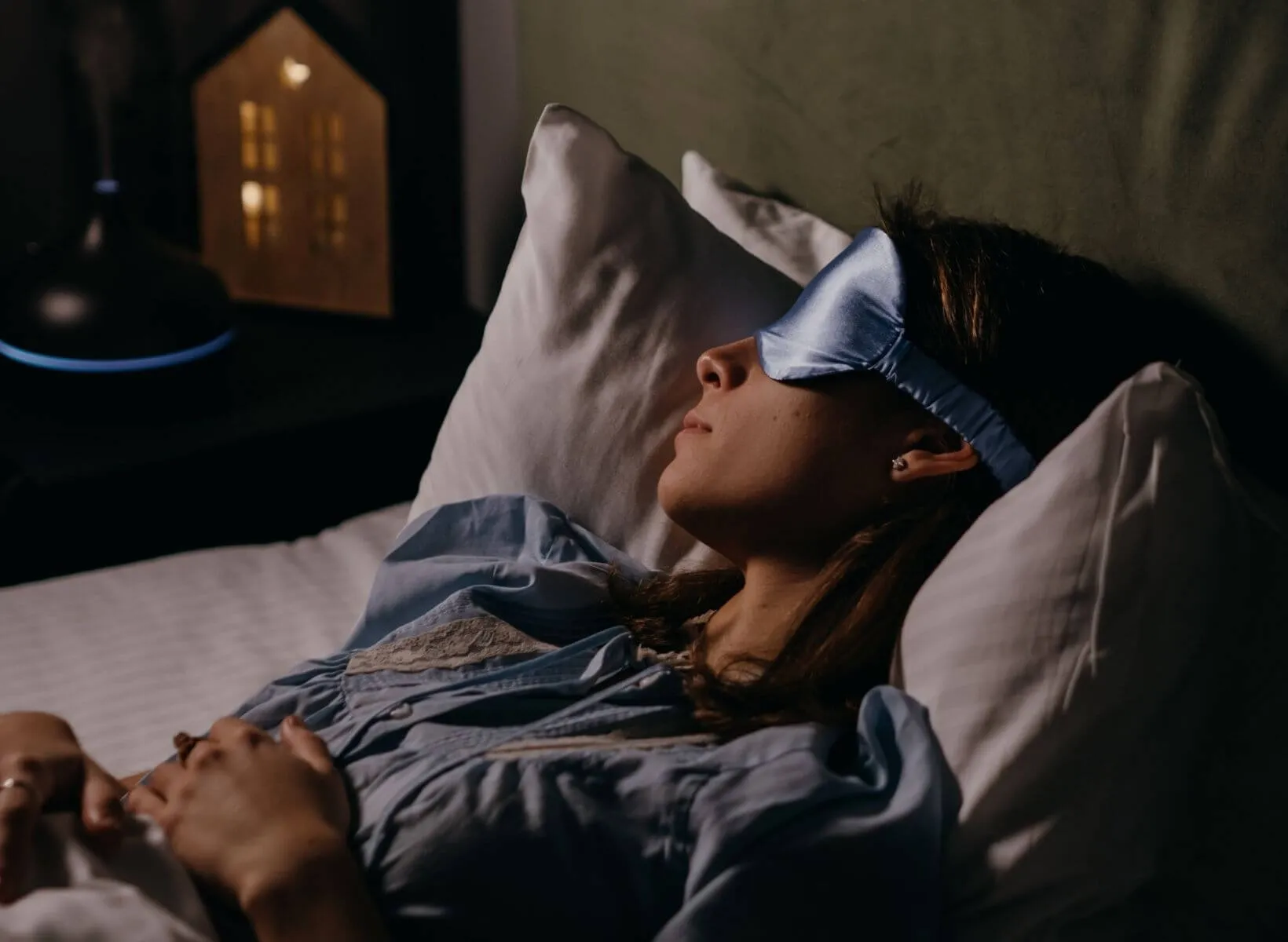Key Takeaways
- Around 2 to 8 am, known as the "dawn effect," depending on your sleep cycle, blood sugar begins to rise as part of your body’s preparation for the day.
- This early-morning surge of sugar and hormones causes your body to release insulin to notify muscle, fat, and liver cells to start taking up sugar in the blood.
- If you’re healthy, your blood sugar won’t remain high for long, and you won’t experience any complications from the temporary rise in blood sugar.
Your body is an incredible machine. When it’s operating how it’s supposed to, it vibes to its own rhythm, producing specific hormones, enzymes, and other substances when it needs them, and reducing production when it doesn’t.
Sugar is one substance your body is always working with (or against, in some cases). The human body requires sugar to power countless reactions and functions, and the level of sugar in your blood will ebb and flow to meet those needs.
If you’ve been tracking your blood sugar levels lately, you may have noticed that your blood sugar is higher in the morning. This might spark some concern, but don’t fret: While high morning blood sugar is common in people with prediabetes and diabetes, it’s also relatively common in people who don’t have diabetes. And as long as your body can manage the increase, you’ll be just fine.
Ahead, we dive into blood sugar and a phenomenon called the “dawn effect” to help you understand why your blood sugar is high when you wake up—and how you can go about managing it.
{{mid-cta}}
Understanding Blood Sugar
You probably already know that blood sugar or blood glucose simply refers to the amount of glucose (sugar) circulating in your bloodstream. Blood sugar dips, rises, and stabilizes over and over throughout the day in response to the meals you eat and the activities you perform.
For example, it’s normal and healthy for glucose levels to increase slightly after a meal and wane over the course of a couple of hours. It’s also normal for blood sugar to decrease during intense physical activity and remain depleted until you replenish with a meal, at which point sugars should stabilize.
<p class="pro-tip"><strong>Learn more about </strong><a href=blood-sugar-bedtime>normal blood sugar levels for people without diabetes</a></p>
Why You Should Track Your Blood Sugar
Most people consider blood sugar tracking a medical necessity that only people with diabetes have to do. While it is inherently important for people with diabetes to track their blood glucose, people without diabetes can benefit, too.
Tracking your blood sugar with a continuous glucose monitor allows you to identify patterns, such as glucose spikes in response to certain foods you eat. Continuous glucose monitoring can also notify you of seemingly non-food-related blood sugar happenings, including the "dawn effect" phenomenon that occurs when your blood sugar rises in the morning before waking.
<p class="pro-tip">Learn more: How does Signos work?</p>
Blood Sugar and Sleep
A lot goes on in your body while you’re sleeping. Aside from dreaming, memory formation, muscle repair, and other functions, your body actively manages glucose during your slumber.
In a healthy human, it’s normal for blood sugar to fall a couple of hours after their last meal and remain on the low end of healthy fasted blood sugar—healthy being 72 to 100 mg/dL—until early morning. Your body doesn’t require as much energy to perform basic functions at night, thus it doesn’t require as much circulating glucose or as much of the hormone insulin.
<p class="pro-tip">Read more: Why it's important to improve your sleep quality</p>
The Dawn Effect
Around 2 to 8 am, depending on your sleep cycle, blood sugar begins to rise<sup>1</sup> as part of your body’s preparation for the day. Some doctors and scientists believe this happens because your body starts to release hormones that affect your circulating blood sugar.
In the early morning hours, your body produces more of the hormone glucagon, which stimulates blood sugar circulation, and cortisol, which counteracts the effects of insulin. Increases in epinephrine and growth hormone also affect insulin production.
During this early-morning surge of sugar and hormones, your body should also start releasing insulin, which should be hard at work notifying muscle, fat, and liver cells to start taking up sugar in the blood. If you’re healthy, your blood sugar won’t remain high for long, and you won’t experience any complications from the temporary rise in blood sugar.
The Somogyi Effect
In people with diabetes, early morning blood sugar levels may read very high due to insulin resistance or lack of insulin production. This is called the Somogyi effect<sup>2</sup> and, if persistent, can lead to a high A1C and related health complications.
The Somogyi effect is thought to be a rebound reaction to low blood sugar and is the body’s attempt at “rescuing” you from low blood sugar while you sleep.
<p class="pro-tip">Read more: What do I need to know about insulin resistance and prediabetes?</p>
Why Your Blood Sugar Might Be Higher in the Morning
Aside from normal hormonal happenings, some lifestyle factors can affect your nighttime and early morning blood sugar. Eating meals late at night can interfere with your body’s usual hormone production schedule and cause unusual morning blood sugar readings.
Skipping meals can have just as much of an effect. Some professionals think the body might produce a rebound effect<sup>3</sup> in the early morning when blood sugar is unusually low at night, which can happen if you skip meals late in the day or if you have diabetes and have low insulin at night. This is the Somogyi effect; it doesn’t seem to be as common as the dawn effect and is likely more common in people with diabetes than without (due to the direct relationship with low evening and nighttime insulin levels).
What you eat for dinner, regardless of what time you eat, may also have an effect on your morning blood sugar<sup>4</sup>. Remember that everyone has unique glucose responses<sup>5</sup> to certain foods.
Some other factors that can affect your morning blood glucose reading<sup>6</sup> (whether you have diabetes or not) include: drinking alcohol before bed, staying up later than usual, going to sleep with a high stress level, exercising late in the evening if you normally don’t, and skipping physical activity if you normally do exercise in the evening.
Is It Normal for Blood Sugar to Rise in the Morning?
The bottom line: Yes, it’s normal for blood sugar to increase temporarily in the early morning hours, but your body should quickly take that excess blood glucose into your cells. As long as your morning blood sugar doesn’t spike to pre-diabetic or diabetic levels—or remain elevated for hours upon waking—your body is just doing its job.
<p class="pro-tip">Read more: Is it better to exercise before eating breakfast?</p>
More Signos Articles About Glucose & Blood Sugar
Glucose & Blood Sugar FAQs
- What Is Glucose?
- What Is Glycemic Index and Glycemic Load?
- What Are Normal Blood Sugar Levels?
- How Does A CGM Work?
- Why Should You Track Your Glucose?
- How to Mitigate High Glucose Spikes to Avoid Fat Storage
- What Is Impaired Fasting Glucose and Why Does it Matter for Your Health?
- Why Is Your Blood Sugar Higher in the Morning?
- What Should Your Blood Sugar Be at Bedtime?
- Can You Lower Blood Sugar by Drinking Water?
- Can Stress Cause High Blood Sugar?
Lowering & Stabilizing Your Blood Sugar
- How to Exercise to Lower Blood Sugar Quickly
- How To Naturally Lower Blood Sugar Fast
- Everyday Foods That Stabilize Blood Sugar Levels
- Stable Blood Sugar: How To Reap and Keep the Benefits
- The Relationship Between Alcohol and Your Blood Sugar
Low-Glycemic Diet
- Low Glycemic Diet & Tips for Managing Blood Sugar
- 7-Day Low Glycemic Diet Plan
- 5 Low-Glycemic Dinner Recipes for Busy Weeknights
- Easy Low-Glycemic Lunch Ideas From an RDN
- Low-Glycemic Snacks for Healthy Eating Between Meals
- Low-Glycemic Recipes for Summer
- Low Glycemic Recipes for Fall




.svg)










.svg)
.svg)
.svg)
.svg)
.svg)
.svg)
.svg)
